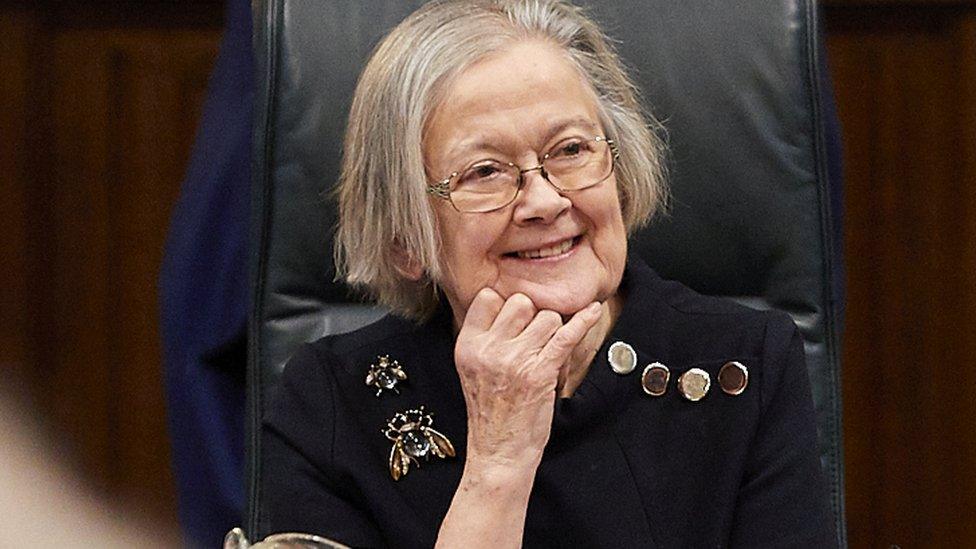Who is the new top judge at the Supreme Court?
- Published
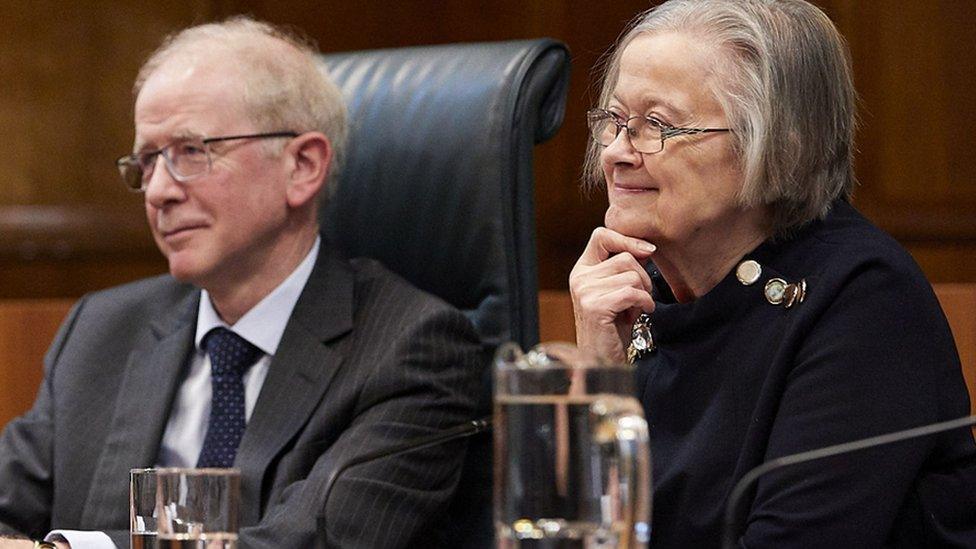
Lord Reed with Lady Hale, who has retired as president of the Supreme Court
Scottish judge Lord Reed has a tough act to follow as he takes over from Lady Hale as the president of the UK's Supreme Court.
Lady Hale and her famous brooch collection became headline news last year as the highest court in the land came into conflict with the UK government over its prorogation of parliament.
However, the distinguished and "pioneering" justice has now officially retired from her post, having turned 75.
The man who has been her deputy since June 2018 is to be sworn in at a special ceremony on Monday.
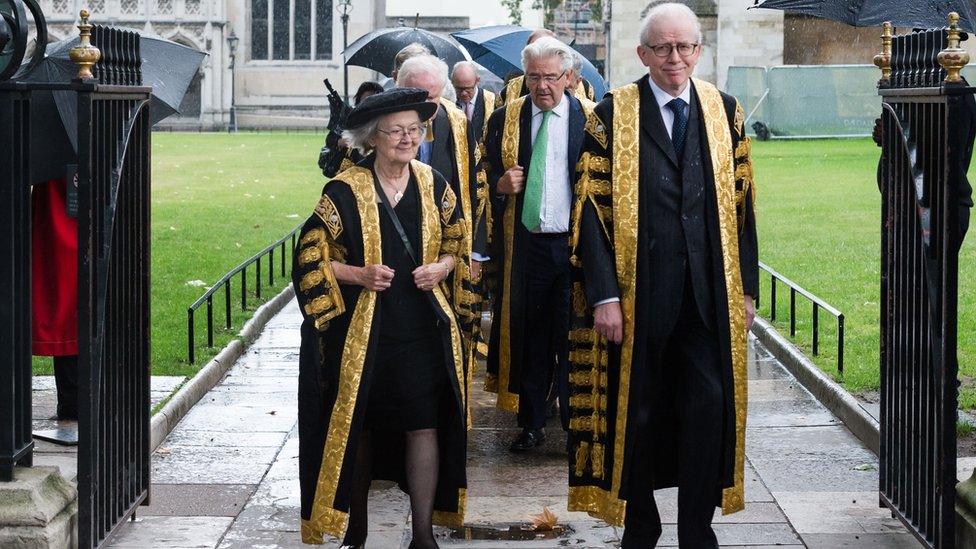
Lord Reed (right) has been deputy to Lady Hale (left) since June 2018
The 63-year-old, who was appointed as a justice of the Supreme Court in 2012, will be the first Scottish president of the court since its creation 10 years ago.
In 2017, he was one of the three Supreme Court judges who dissented against the ruling in the Brexit court case brought by financier Gina Miller.
The ruling by all 11 justices ordered then Prime Minister Theresa May to seek parliament's approval before she could trigger the Article 50 countdown to start the Brexit process leading to the UK's departure from the EU.
But Lord Reed and two other justices said at the time that the legalisation of political issues was not always constitutionally appropriate.
Who is Lord Reed?
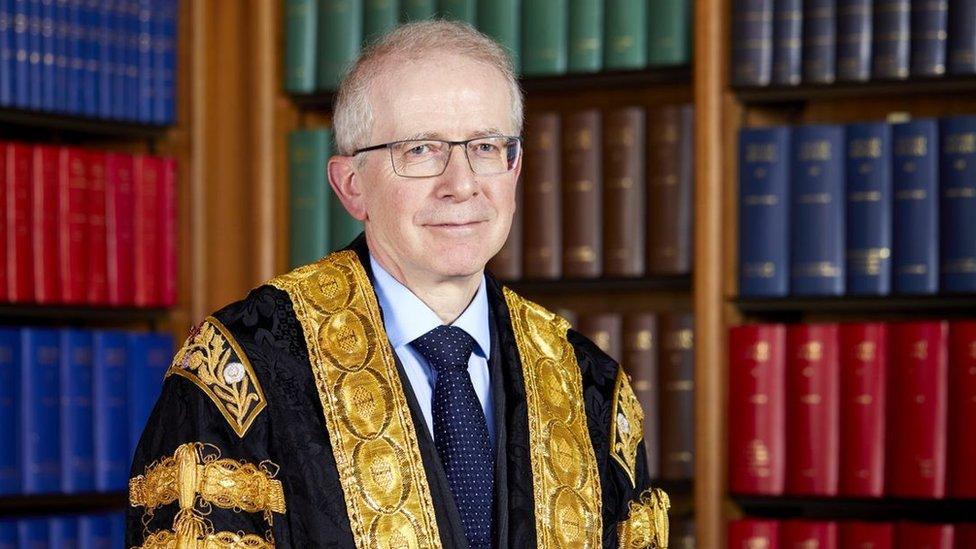
Robert John Reed was born in Edinburgh in 1956 and educated at the independent George Watson's College. He studied law at Edinburgh university and later Oxford.
He was admitted to Scotland's faculty of advocates in 1983 and became Scotland's youngest ever judge in 1998, at the age of just 42.
The following year, Lord Reed sat at the European Court of Human Rights where one of the cases he heard was an appeal by Robert Thompson and Jon Venables, the two boys who, as 10-year-olds, had murdered toddler James Bulger.
The panel ruled that the pair did not get a fair trial in 1993 because they were treated as adults at the court hearing, and not as juveniles.
Lord Reed took the slightly unusual step of writing a concurring opinion, explaining why children should not be tried in the "highly formal" atmosphere of an adult court.
Before he was appointed to the Supreme Court Lord Reed sat in the Outer House of the Court of Session, where he was the principal commercial and companies judge. He sat in the court's Inner House from 2008 to 2012.
He has previously compared handling appeals in the Scottish court's Inner House to working the tills at Tesco while he said the Supreme Court could give cases the "Rolls-Royce treatment".
He said the Inner Court dealt with hundreds of cases each year while the Supreme Court only took about 75 from the whole of the UK.
It picks the cases that it deems the most important and looks at them with "more care and trouble", he said.
'Biggest legal brains of his generation'
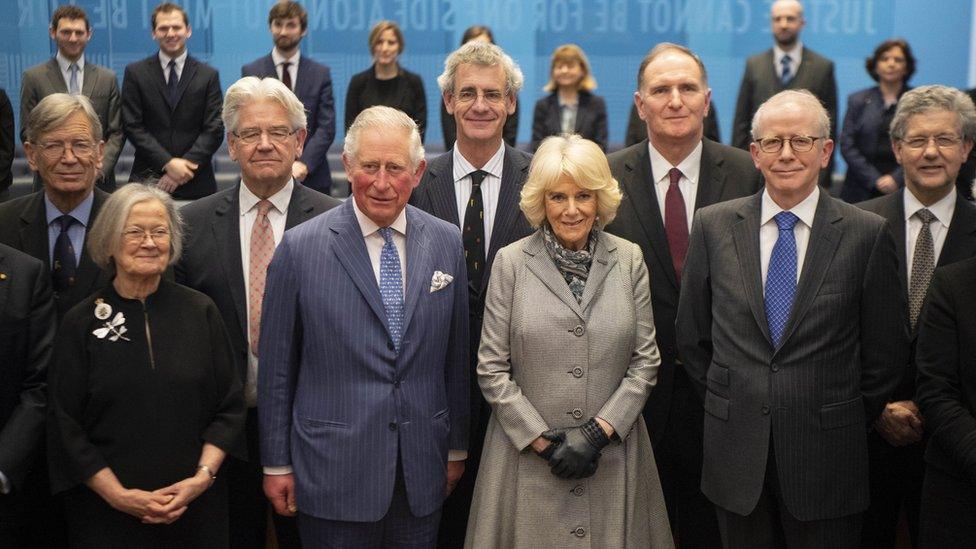
Lord Reed (front, right) during the visit of Prince Charles to the Supreme Court in February last year
Lord Hope, who was the first deputy president of the Supreme Court, said he worked with Lord Reed at the Scottish Bar and had great respect for him.
"I knew him as an extremely careful, painstaking and very pleasant person to deal with," he said.
The new president was a quiet and self-contained person, Lord Hope said.
"I think he will be the first to recognise that Brenda Hale's presidency is a very hard act to follow," he said.
"She was very well-known, world famous, and he is not like that but that is not his job."
He said Lord Reed would seek to "steady the ship" and make sure it worked as smoothly as it had always done.
Lord Hope said the job of the president of the Supreme Court was to represent the institution and make sure it ran properly.
He said Lord Reed would not sit on every case and when he did he would be one judge among equals.
The president does not have a casting vote and he does not control the cases, he said.
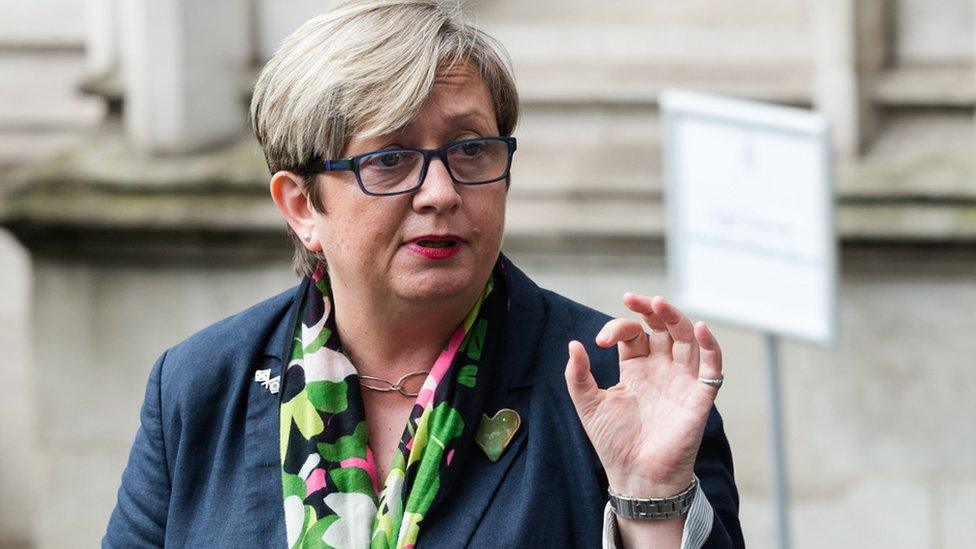
Joanna Cherry QC said Lord Reed was highly respected
Joanna Cherry QC, the SNP MP who brought the prorogation case against Boris Johnson's government last year, said Lord Reed was "very polite, very courteous but very exacting".
She said: "He is widely recognised as one of the biggest legal brains of his generation.
"He is a highly respected and a deeply courteous man but he is not to be trifled with. He knows the law inside out and you had to be prepared when you appeared in front of Lord Reed."
The new president was appointed to succeed Lady Hale on the advice of an independent panel of legal experts.
In one of her last speeches, Lady Hale warned about the government against picking judges as they do in the US.
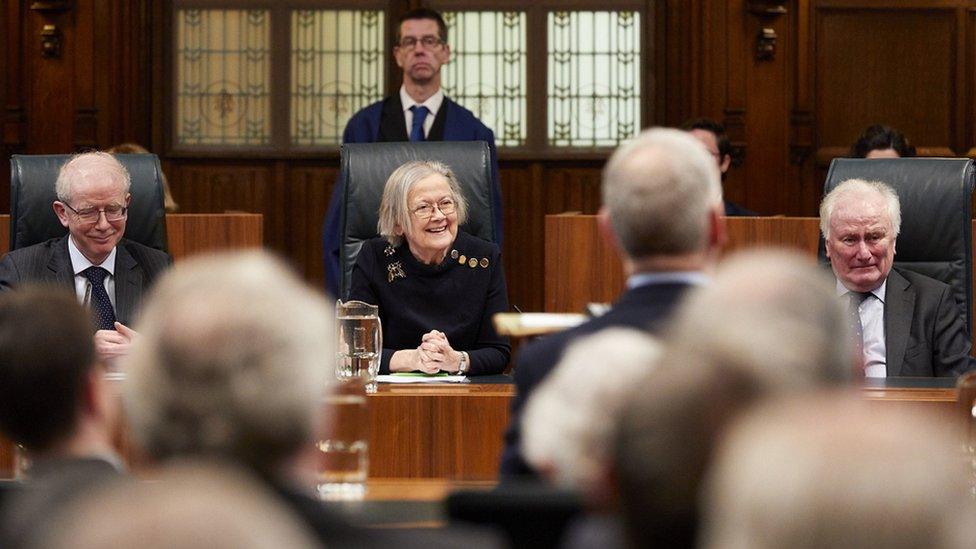
Lord Reed on the left of Lady Hale at her valedictory sitting in the Supreme Court in December
Former deputy president Lord Hope agreed that maintaining the independence of the judges was crucial to how the system works.
"It must be understood that we are very different from the United States," he said. "Judges are appointed there for their political beliefs. That simply does not happen here. Their politics are unknown to their colleagues.
"They don't engage in political argument. That's completely foreign to them and deliberately so."
He said Lord Reed would continue the "marvellous tradition" of leading Scottish judges of the past such as a previous Lord Reid, one of the most outstanding judges of the 20th Century.
"He brings the attitude of the Scots that have preceded him, which is calm, measured and carefully thought out, which is his trademark," he said.
- Published24 September 2019
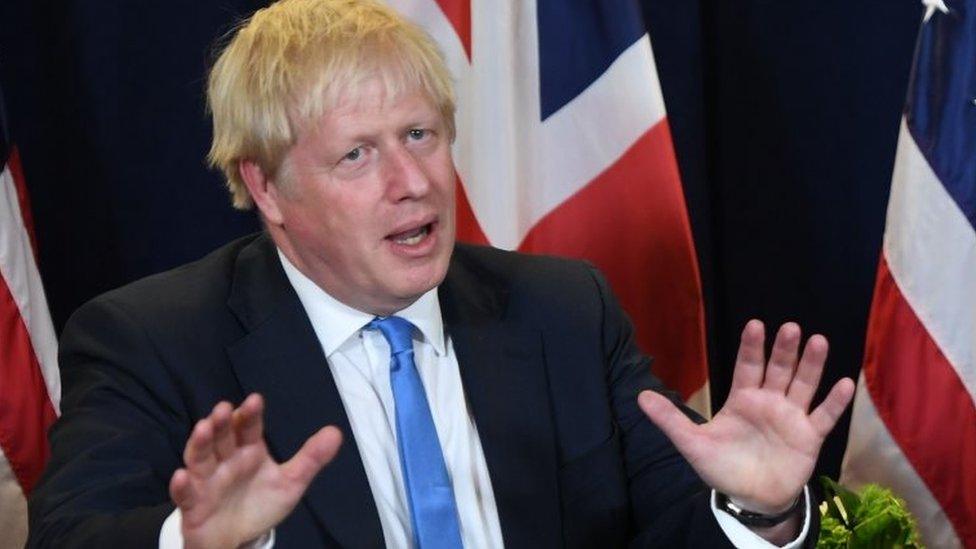
- Published24 September 2019
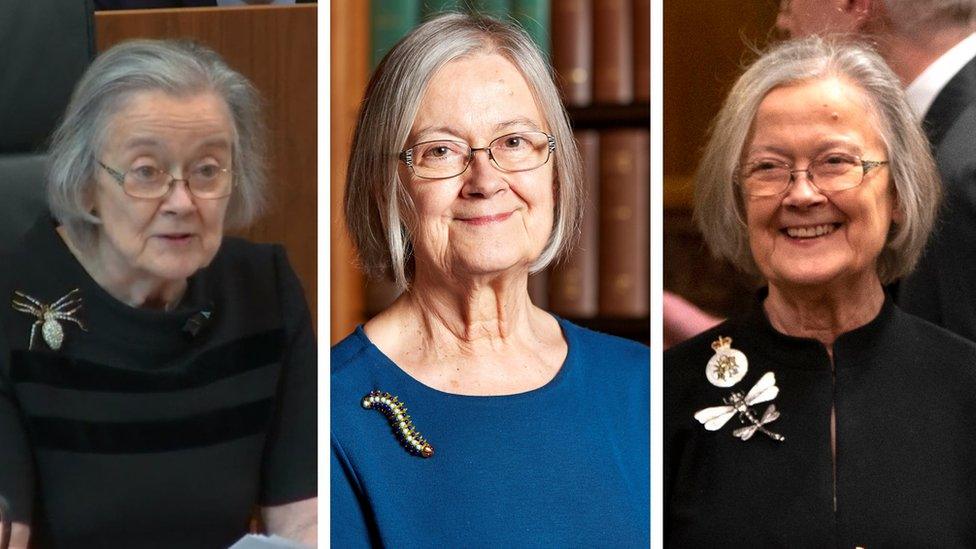
- Published18 December 2019
